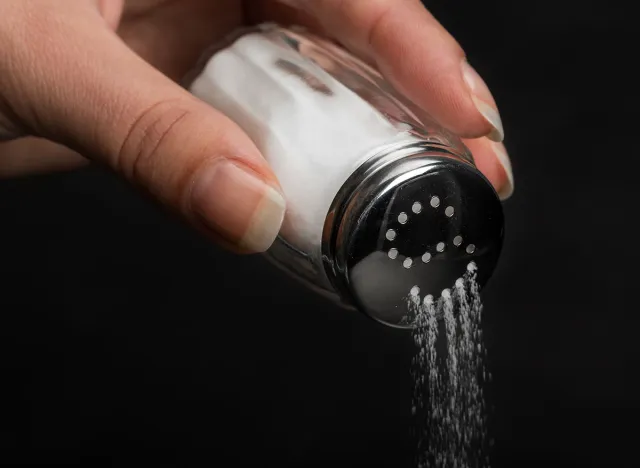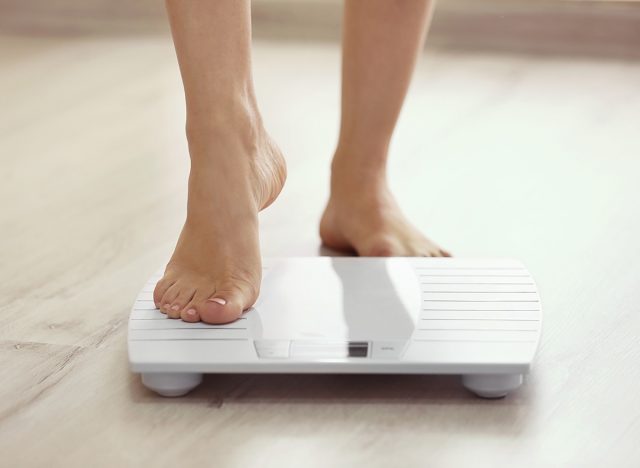7 Surprising Causes of Overnight Weight Gain

The scale can play tricks on you. One day, you weigh yourself, and the next, the scale has jumped up a few pounds. Did you really gain weight overnight? According to Andrew Holmes (@andrewholmes79), a fitness and weight loss coach who regularly shares videos setting the weight loss record straight, there are seven reasons why the scale "jumped up overnight." In a recent video, he explains that they all have something in common: They have "nothing to do with fat gain," he says, advising his followers to "stop freaking" out over the number on the scale. Here is what he says could be the culprit – and also what Body Network's Resident RDN, The Diet Diva, Tara Collingwood, MS, RDN, CSSD, LD/N, ACSM-CPT, a Board Certified Sports Dietitian, and co-author of the Flat Belly Cookbook for Dummies, thinks about it.
Reason 1: Constipation

The first reason you might be bloated? Constipation. If "you haven't had a good poop in a few days," it can show up on the scale, he maintains.
Reason 2: Hormonal Changes

Hormonal changes, especially during that time of the month, can lead to fluctuations on the scale and leave ladies "a little bloated," he says.
RELATED: 7 Lifestyle Factors Slowing your Metabolism to Crawl
Reason 3: Sodium

Did you eat a lot of salt yesterday? "Maybe you had too much sodium yesterday, and this is causing your body to hold onto a little extra water," he maintains.
Reason 4: Stress

Stress can also lead to extra numbers on the scale, as it "leads to hormonal changes, and that causes water retention," he says.
Reason 5: Lack of Sleep

Not getting enough sleep can even add pounds. How? Sleep impacts stress, "which causes, you guessed it, more water retention," he says.
Reason 6: Inflamed Muscles

Did you hit the gym yesterday? If "you had a tough workout yesterday and now your muscles are inflamed or swollen," it might translate to a spike on the scale.
Reason 7: Building New Muscle

Also, if you have been lifting weights and working out a lot, "getting strong" and "building new muscle," the scale might go up.
Our Expert Agrees

Body Network's Resident RDN, Tara Collingwood is in agreement with all of Holmes' reasoning. "The biggest reason the scale fluctuates is fluid balance," she says. "Water weighs a lot and can change the scale by one to four (or more depending on your body size) pounds in a day! Hormones, exercise, bathroom habits, food intake, salt intake, etc., can all significantly affect these numbers."
RELATED: I Lost 30 Pounds With This Simple Change
Here's How to Know if You Are Building Muscle or Adding Fat

"If you see the scale continuing to climb over a few days to a week, then either you have a chronic condition of fluid gain, or you are gaining weight, but it could also be that you are gaining muscle," she says. You might want to gauge this by how your clothes fit. "If your clothes fit great, but you've gained a few pounds, AND you've been lifting weights, then it could indeed be muscle," she says.
💪🔥Body Booster: Weighing yourself isn't always the best measure of fat loss. Instead of only relying on the numbers, try on clothes and assess how they fit.
@andrewholmes79 7 reasons the scale jumped up overnight that have nothing to do with body fat gain. #fatlosstips #weightlosstips #nutritiontips #workouttips #healthyeating ♬ original sound – Andrew | Weight Loss & Mindset




